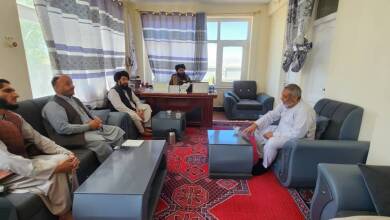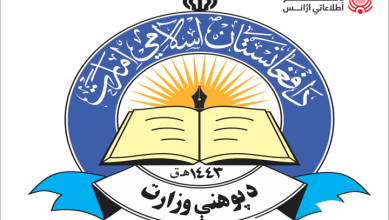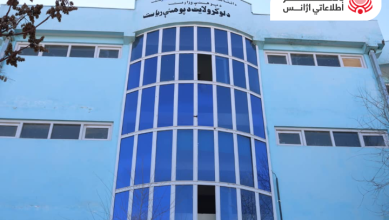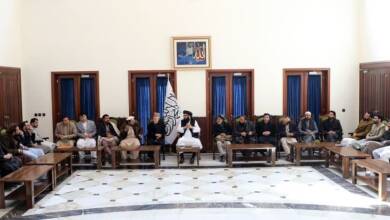
Saturday, September 12, 2015
Kabul (BNA) In his remarks the other day in ARG on the occasion of International Literacy Day, President Mohammad Ashraf Ghani said that literacy led to rise of civilization. “Without literacy,” he said, “neither historical memories nor social continuity could be secured.”
President Ghani said that literacy has a special place in our history. He noted that without literacy one would not be able to understand his or her religion, culture, civilization or appreciate links to other cultures and civilizations. He added that about 2,500 years back, women in this geography could read and write, and between 2,500-3000 years ago, irrigation system was invented here. The President also brought up the example of Kaka Sayed Ahmad Ludin, who about a hundred years ago, developed a guaranteed method to turn an illiterate person into literate in a matter of three weeks.
The President recounted one of his memories when he visited a police training center in Maidan Wardak province about two years ago. He said that there were about 500 soldiers in the center, out of whom 90 % had studied up to the 6th grade and the rest up to the 8th grade; yet, they were still illiterate. The President pointed to the shortcomings in the Ministry of Education as the main causes for the presence of those who were apparently educated, yet illiterate.
The President called for a participatory national mobilization plan as part of which school and university students, civil society activists, and government civil servants each commit to make several people literate. He brought up the case of Rwanda that managed to bring down the level of illiteracy in a very short period of time as a result of implementation of such a national mobilization plan.
Underscoring the key role of the Ministry of Education, the President ordered the Ministry to undertake an assessment to determine how many literate students there are in the country. Addressing the Ministry of Education, the President said that there are dozens of inspection offices, but little coordination and more than 70 General Directorates but little order.
The President also directed the Ministry of education to clarify in the next few weeks, the basic functions of the Ministry and tell him and the donors exactly how many schools there are in each district and province of Afghanistan.
Highlighting the crucial role of Ulema in countering illiteracy, the President said that unless each mosque becomes a counter-illiteracy focal point, it is will be extremely difficult to bring fundamental change in this area.
The President said that the school curricula also suffer from serious shortcomings and urged that the books should be simplified, comprehensible and considerate of the students’ level of understanding.
Underscoring the importance of providing quality services at low cost, the President vowed that for betterment of affairs he will chair the meetings of the National Literacy Committee twice a year.
The President thanked the donor countries and organizations, and praised Swedish Committee for Afghanistan for its services in the country. He said that if there were no Swedish Committee for Afghanistan, there would be far more illiterate people. He said that during the rule of the Taliban, Swedish Committee for Afghanistan played the role of de facto Ministry of Education.
Concluding his remarks, President Mohammad Ashraf Ghani conferred Alama Sayed Jamaluddin Afghan State Medal of Excellence to Mr. Hiroshi Takahashi, Ambassador of Japan in Afghanistan for his outstanding services. The President also conferred the First Degree Baryal Medal to Major General Todd T. Semonite, commander of CSTC-A for his excellent services in the area of literacy and education.
Moreover, Ministry of Education nominated First Lady Bibi Gul as the Literacy Ambassador for her great services in the field of education.




